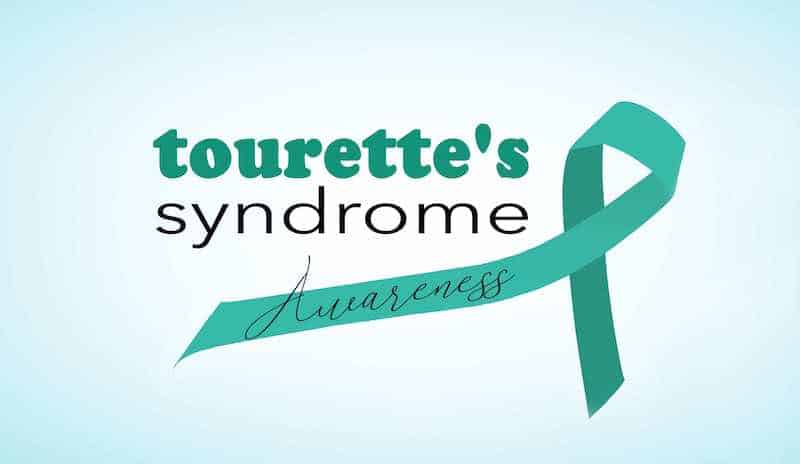In this paper, I will be exploring my personal battles as well as the negative ideas people have about those with Tourette’s syndrome. To start with, I am qualified to speak on this because I have Tourettes and a few friends who have it as well. It can be tough and very challenging at times. In this paper, I will highlight some of my personal experiences and some experiences others have shared; the negatives of Tourettes can hurt those around the individual as well as those who are actively battling the tics, the assumption I have seen and experienced, to quote some is “They’re just doing it for attention.” Or “Man if I had Tourettes I could get away with anything.” Framing it as a scapegoat technique is very hurtful and minimizes what we go through daily. I have been terrified of people who I love and care for and how they will react to some of my tics. Most of my family is Christian, thankfully not radical. But nevertheless having a tic that says “God is dead and we killed him ” was horrifying to me and still is. The idea that I have any control of it or those who wish they had it hurts. The looks, the stares when we can’t control ourselves. It’s a feeling of loss of control. Like no matter what you do you can’t achieve control of your own life. It’s demoralizing, and to have some people say “I wish I had that ” breaks the spirit in so many ways. Not all people are like this of course but not a lot of people stick up for us either. Those that do, you have our gratitude. Those who sit beside us and explain to people when tic attacks happen. Those who give us something to fidget with or offer music to occupy us. You’re remembered and we’re grateful for you. Some people don’t know how to help and that’s okay, but to those who stare and glare, those who whisper and call us freaks. I hate having to be sorry for something I can’t control. Something that feels like a demon has possessed me and made me say these things. Sometimes I wonder if in the old days those who were “possessed’ actually just had Tourette’s syndrome. While I know things nowadays are better than ever for people with tics, the negative looks are still there and will continue for a long time. I just wanted to highlight this first before moving to the few positives. The one that immediately comes to mind is those who laugh at our tics, but not in a mean way those who genuinely find it funny and try to make people with tics more comfortable, shout out to them for being a good force in this world. People who can smile and help even without knowing who we are. You are remembered by us, for every act of kindness and every smile or laugh that comes our way. We remember. While I write this with a smile on my face remembering those who helped me I would like to say that you will never be forgotten for the feeling of safety that you have brought us with your actions. I’ve had both good and bad interactions in my experience, I wouldn’t exactly call them microaggressions as I haven’t felt necessarily targeted beyond just a look or a scoff. As I write this I am currently talking to my girlfriend who also has Tourettes, as we share experiences and talk together I know what I want to do with my positions. I want to inspire those who also have this detriment some would call it a disability. I want nothing more than to help those who feel alone, those who have been dealt the same hand like me and so many others, those who wish to take their control back. Even then, controlling tics is sadly a skill you have to learn, not something you can just do. I have mild to major Tourrettes, I know some who tic somewhere about 500+ times a day, whereas I myself max out at around 300+ on my worst days which is an estimation, not fact. It’s exhausting, mentally and physically. And it can hurt. I have tics that physically hurt me to do, and some people have actively attempted to trigger them because they find it funny. I can admit I find some of my tics funny but I have to; Because if I don’t have some way to cope with them I will go insane. If you’re reading this and you have Tourettes I want you to stop and take a moment to breathe, I’m doing it myself at this moment. While you continue reading this I have already stopped multiple times while writing to control myself, from my tics as well as my emotions. This is something I didn’t realize I was holding in for so long and finally having an outlet to write feels so good, a platform for me to speak on my experiences and have those like me relate and understand, finally not having to be worried about ticking mid-sentence and causing a scene or worse yelling out an obscenity in public while I was simply walking. Yes, that has happened to me and others before, sometimes you cannot hold back a tic, sometimes I have to bite my hand to hold it back. And when I mentioned these plights to one of my friends without Tourettes they asked me “Have you ever thought about putting a muzzle on you and trying that?” Sadness and anger permeated me. Words that I knew came from genuine attempts at helping me flooded my brain with feelings of betrayal. I have since forgiven this person for what they said but I can’t forget no matter what. There was a time I felt so alone, before I had my diagnosis, before my medication, before any of those things that helped me. Once again I have stopped writing to collect myself, this is emotional, this is something raw that I am writing, This is me finally taking a stand for something that I have never seen others do. This is me speaking out for those who haven’t had a chance to explain or speak for themselves. This is the memoir of my experiences and pains and those similar stories shared by so many others. This is something that I hope will convince others to speak loud and proud with their voices. This will be something that others can find a sense of companionship in! Above all else, I hope this is something that people without Tourettes will be able to understand. We don’t hate you, we don’t dislike you for not having what we have, we just want you to accept us, and give us all a chance. A chance to find that control that we’ve missed for so long, a chance to be normal even though it’s impossible, a chance to be ourselves without restraint. A chance to be just us. Below this, I will have a couple of links, those for people with Tourettes and those without, it will have information and things like as well as a helpline, I hope you found this useful to you, I hope this is something that will minorly change how you see people with Tourettes at best. Thank you for taking the time to read this.
For people with Tourettes
888-4TOURET
For those without Tourettes
APA CITATIONS
Newman, S. (2009). Irreconcilable differences? tourette syndrome, disability, and definition in Democratic policy debates. Disability Studies Quarterly, 29(3). https://doi.org/10.18061/dsq.v29i3.934
Hartman, J. (2017). Premonitory urges and touretting volcanoes. Review of Cognitive Linguistics, 15(1), 154–182. https://doi.org/10.1075/rcl.15.1.07har
Burd, L. (2014). Language and speech in Tourette Syndrome: Phenotype and phenomenology. Current Developmental Disorders Reports, 1(4), 229–235. https://doi.org/10.1007/s40474-014-0027-1
Miller, J. (2001). The voice in tourette syndrome. New Literary History, 32(3), 519–536. https://doi.org/10.1353/nlh.2001.0039

